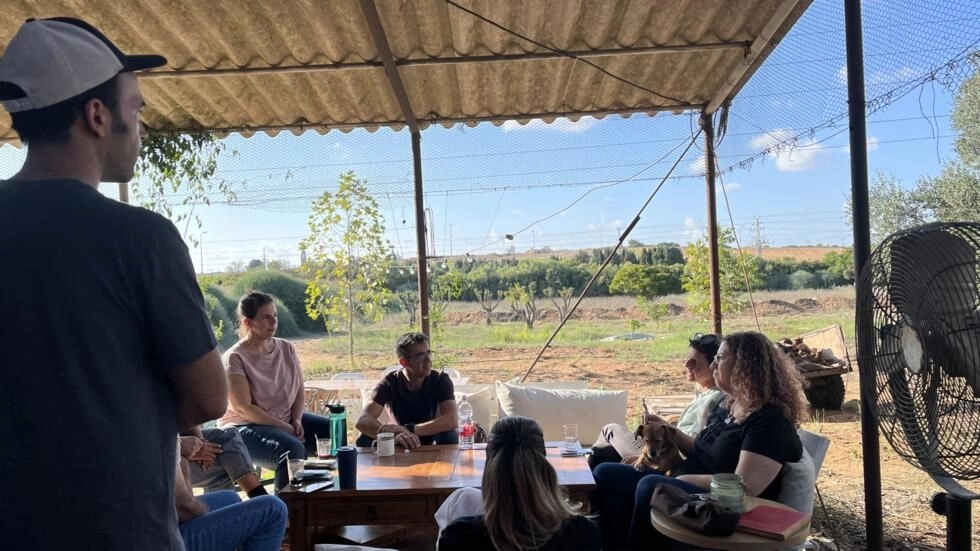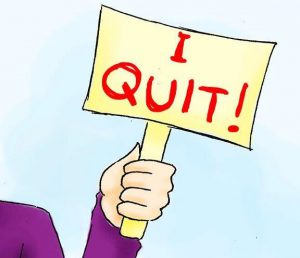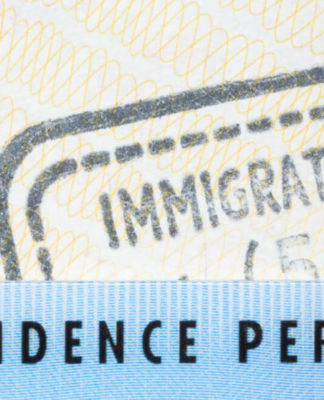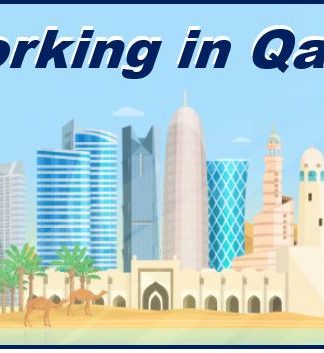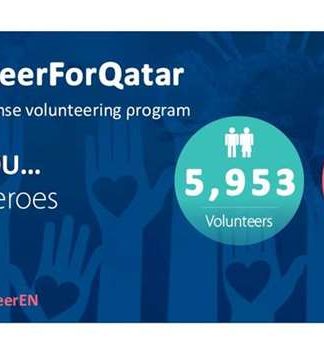Back to homepage / Middle East
ON THE GROUND
In Israel, Tribe of Nova festival survivors seek solace in trance music culture
From our special correspondent in Israel – The Tribe of Nova was the first time one of the world’s most famous psychedelic trance (or psytrance) festivals took place in Israel. It turned out to be the country’s worst terror attack. For psytrance music followers, the time for therapy to prevent post-traumatic stress disorder has come.
Issued on: 21/10/2023 – 17:52
8 min
Einat Haimovich meets with volunteers south of Tel Aviv in Israel on October 19, 2023.
Einat Haimovich meets with volunteers south of Tel Aviv in Israel on October 19, 2023. © Assiya Hamza, FRANCE 24
By:
Assiya HAMZA
“It was the most amazing minute of my life. All my people were there. The sky was beautiful. The birds were beautiful in the sky. The music, everything was so amazing. I felt like the whole world has a way for salvation. And then it happened. So this is what makes it horrible. Because it was the most beautiful moment,” psychotherapist and clinical social worker Einat Haimovich tells FRANCE 24.
Since the Hamas attack on Israel on October 7, Haimovich has been listening to the survivors of the Tribe of Nova music festival. She has heard stories like this a lot. Far too many.
Read more
‘We survived by playing dead’: Hamas attack turned Israeli rave into nightmare
Some 260 people were killed and dozens more kidnapped among the 3,500 or so who had flocked from all over the world to celebrate the values of “free love and free spirit, preservation of the environment, appreciation of natural values” promoted by the festival. “Many people that I spoke to said it was the best party they have ever been in,” Haimovich says.
“[Everything was] sunny and beautiful. [Everything was about] friendship and love … [and] in a minute [’s time] … dark[ness] came into our lives,” she adds.
The social worker was due to travel to Greece that day to celebrate her 50th birthday.
Einat Haimovich has opened a shelter for survivors to help them ground themselves in reality.
Einat Haimovich has opened a shelter for survivors to help them ground themselves in reality. © Assiya Hamza, FRANCE 24
Instead, Haimovich, along with her partner Iftach Shahar created a place to welcome members of their psychedelic trance music community.
“I [originally] built this place for Dhamma (editor’s note: Buddha’s doctrine) teaching and meditation,” Shahar says.
“[But] after we understood the situation here in Israel … we opened it especially for the people that came back from the festival. But we are open for everybody. We are not making any selection. Anyone that feels that he needs to talk and needs a big hug. We are here to hug him … be with them for a while and cry with them and maybe laugh with them,” he says.
The refuge, located in a moshav, a cooperative farmers’ village south of Tel Aviv, was ready in less than 10 days. The set-up is simple but welcoming: a large wooden terrace, second-hand furniture, an open-plan kitchen and, behind it, a room entirely dedicated to meditation. Everthing is set against soothing background music made up of the metallic jingling of wind chimes.
‘Hippies in our souls’
“I think that the trance community here started in after the first intifada in Israel (editor’s note: 1987-1993),” Haimovich says.
“After that we all felt like we need to bring our free spirit, to bring our love, to bring the idea of peace. We [are] all like hippies in our souls even though we had to fight in the war,” she says.
Since then, Israel’s psytrance music scene has grown massive. The Tribe of Nova was the first Israeli edition of the Brazilian psytrance festival Universo Paralello, one of the best known in the world. But it became the worst terror attack in Israel’s history.
Iftach Shahar has been suffering from post-traumatic stress disorder for 25 years.
Iftach Shahar has been suffering from post-traumatic stress disorder for 25 years. © Assiya Hamza, FRANCE 24
Apart from the volunteers, the place Haimovich and Shahar created is for the moment depressingly empty.
“We just opened yesterday. So people still don’t know about this place,” Shahar says, noting that only six people came the previous day.
“I believe that next week … people will start coming,” he adds.
Like other Israeli therapists, Haimovich began talking to victims through Zen Zones, groups set up to help people whose psychedelic journeys were not going as planned.
“It was there they [were] sending us their name and we’re calling them and we start talking to them … Many therapists in Israel start[ed] talking to them on the phone to help overcome the trauma through grounding, breathing … talking about the guilt, the fear, [and] everything that they’ve been through in that horrible day,” Haimovich says.
The nightmare had lasted during 12 hours for the victims, Haimovich adds.
Soon it became clear that the victims needed a place.
“Not for therapy but to be together, to sit down, to eat something, to drink coffee, to do some art, to paint, to play music … to get back to their lives, to what they knew of themselves before,” she says.
“The idea is that the people who need therapy … long-term therapy, will go to therapy, and they can come here just to be themselves,” Haimovich says.
Every day, five to 10 people, all volunteers, will take turns to welcome them. Each with his or her own tools and techniques. Among them, dance therapist Tal Weiss Sade explains her methods.
Tal Weiss Sade uses her ocean drum on October 19, 2023.
Tal Weiss Sade uses her ocean drum on October 19, 2023. © Assiya Hamza, FRANCE 24
“My perspective is always the body,” she says, kneeling in the meditation room.
“In trauma the body is quick to speak and we need a lot of … grounding,” Weiss Sade says, adding that she uses Tibetan bowls, ocean drums and sand-filled cushions that she places on the body.
“That heavy touch [is] very relaxing … like an ocean … [which helps] lower our anxiety levels,” she says.
Tibetan bowls installed in the meditation room on October 19, 2023.
Tibetan bowls installed in the meditation room on October 19, 2023. © Assiya Hamza, FRANCE 24
Weiss Sade readily admits that helping the survivors allowed her to breathe a little. To escape the four walls of her home, where she lives with her daughters.
“This is … what’s so beautiful in Israel. The civilians, the communities here are amazing,” Haimovich says.
“Everybody … volunteers to do something … [Even though] the country is not really working … the people working here are amazing … We hold a hope that something good will happen in Israel after this terrible, terrible thing that happened here,” she says.
Read more
Ex-soldiers shift from protesting to providing aid to people – and pets – in southern Israel
Shahar meanwhile hopes to help the festivalgoers who suffer from post-traumatic stress disorder.
“You know [the series] Fauda (editor’s note: an Israeli television series about a special forces unit going undercover among the Arab population)? I was in Gaza streets walking dressed as a woman. The fighting there was very bad at the time… In half a year, nine guys from my unit died and me and my friends in the unit killed hundreds,” Shahar recalls, suddenly seized by a rush of emotion.
“So I came out of the army with very strong PTSD … and it took 25 years to understand how to deal with my PTSD,” he says.
Saved by psychedelic therapies
Shahar says he went through 25 years of wandering accompanied by alcohol and drugs.
“After a while, I understood that it’s either I choose death [or] I choose life … slowly I started recovering and then Buddhism and meditation came in and [I started] working with psychedelics and medicine. And slowly, slowly I started to, to touch my traumas and deal with them. And today I can say that I’m okay, but I’m not cured,” Shahar says.
Recounting his first psychedelic trip, Shahar says he had had to take 10 grams of hallucinogenic mushrooms for it to work, whereas today he only needs “2 grams [and] I’m like in heaven”.
Shahar says he saw himself in a cradle at a year-and-a-half old.
“I was crying, crying, crying, crying and nobody came to me and then I looked at that baby and … it’s the same feeling that I’m feeling now. It was depression. And I went to that baby … and I hugged him and I said, everything will be okay and sorry. And the day after I woke up … no [more] depression like a miracle,” he says.
Shahar then began taking other psychedelics such as LSD, and managed to deal with army-related traumas.
“I froze, you know, and people like were hurt and I couldn’t do anything. And then I started to understand that all these years of drinking and taking drugs and running away, because I forgot that situation,” he says.
Considered 60-percent disabled by the Israeli army due to PTSD, Shahar admits that he has been going through a difficult time since the Hamas attack.
“I built this place for people who I know are going through hell.”
Read more
Israel’s Negev Bedouins, forgotten victims of the Hamas attack, rally to provide aid
Shahar is convinced that many of the survivors of the attack are in the limbo he was in 25 years ago.
“They are now sitting in their homes and smoking weed like crazy or maybe trying to work with themselves with psychedelics, which is very bad because you need people who know how to work and how to take you through the trip … So yeah, we need to take them by the ear and bring them here,” he says.
Haimovich, however, warns that she will not be using any psychedelic therapy.
“It’s not legal here. So we’re just doing the preparation and the integration,” she says.
The psychologist then recalls that many festivalgoers were on drugs and in a state of ecstasy when the attack began.
“Some of them ran, hid, helped other people to hide … not moving for six hours. They really are heroes. It is amazing to hear the stories. They found power in the most terrible moments of their lives, to talk to their moms and to tell them thank you,” she says.
Haimovich does not hesitate for a second when asked whether the psytrance scene, firmly established in Israel for decades, can survive such a trauma.
“We believe that all of us are one and this is what’s happening in these parties … People died while doing this [so] we must continue the legacy that they left us. This is the legacy of love and peace,” she says.
This article is a translation of the original in French.














